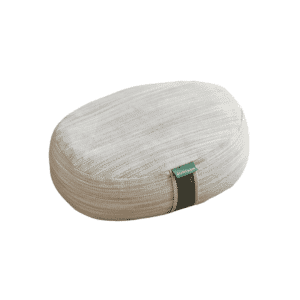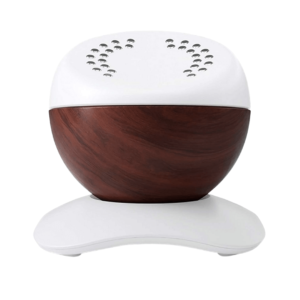One day every November, we as a nation pause to give thanks for the good things in our lives. Thanksgiving Day is the day we step back and reflect on the year’s blessings. Besides the delicious Thanksgiving feasts & family gatherings, the holiday is centered around giving thanks… but why should you really express gratitude on Thanksgiving? How can it impact your health? Is there a “best” way to express gratitude? Keep reading to learn more – some of these facts will absolutely shock you.

(Note: This article contains affiliate links, meaning In On Around will make a small commission at no additional cost to you. This helps me maintain the site. As always, I value full transparency & only work with brands I love and trust.)
Why Be Grateful?
Living gratefully has far-reaching effects. To start, grateful people, on average, have roughly 7% higher income than those who do not practice gratitude. They also give 20% more of their time and money to help those in need. Statistically speaking, those who give back to others are the happiest & they tend to develop strong bonds with friends, family, and local communities. [1]
Studies also show that grateful young children and teenagers are 10 times less likely to start smoking, 13% less likely to get into fights, and 20% more likely to get good grades. [2] Teaching children the importance of gratitude from a young age can help set them up for success.
“Wear gratitude like a cloak, and it will feed every corner of your life.”
Rumi
How Gratitude Can Impact Your Health
Living gratefully should come naturally year-round. It can have major impacts on your health (whether you’re aware of it or not)!
Expressing or receiving gratitude releases dopamine in the brain. Dopamine is the neurotransmitter (a very important one) that is associated with pleasure and a euphoric feeling. It’s the “happy” hormone in the brain! A small act of gratitude can increase dopamine in both the giver AND the receiver. Sounds like a win-win to me!
Expressing gratitude can improve mental, emotional, and physical health.
How Gratitude Improves Mental Health
- Relieves anxiety and depression
- Relieves stress (decreases cortisol levels, aka the “stress hormone”)
- Increases optimism
- Decreases materialism
How Gratitude Improves Emotional Health
- Increases happiness
- Strengthens relationships with yourself and others
- Reduces aggression
How Gratitude Improves Physical Health
- Improves sleep quality and duration
- Leads to better decision making
- Decreases headaches
- Decrease of gastrointestinal problems (especially those caused by stress)
- Lower blood pressure
- Reduces respiratory infections
- Fewer body aches
- Lessens inflammation
- If you’d like to learn more about decreasing inflammation, check out this article: How To Eat An Anti Inflammatory Diet
… and so much more.

Gratitude and appreciation can have long-lasting effects on the brain. In a recent 2020 study, brain scans showed that those who wrote daily letters of gratitude had increased activation in the medial prefrontal cortex (an important part of the brain that helps with decision making). [3] It’s also been shown to reduce feelings of uncertainty and increase social worth. [4]
If that doesn’t convince you to show thanks, I don’t know what will!
The Challenges With Gratitude
In the midst of the rollercoaster we call life, it can be difficult to live gratefully every day and we often get lost in the hardships. Daily gratitude can be overshadowed and sometimes it’s difficult to identify what you are grateful for.
With the holiday season approaching, there is the expectation that everyone is happy and festive. It’s known as “the happiest time of year.” Unfortunately, that’s not always the case for many people. The holiday season can come with increased anxiety and depression for some.
But lucky for you, I know the secret to alleviate the negative feelings that sometimes come along with the holiday season!
Research suggests that Thanksgiving can promote happiness, but it’s not the holiday itself that has this power. The power Thanksgiving has is all thanks to being grateful. So what if we incorporated gratitude into our everyday lives? Wouldn’t we be able to reap the benefits all year round? You bet!
Here’s a challenge for you. When you feel as though life is not going quite your way, take a step back. Take just 5 minutes to yourself to remind yourself of things you are thankful for.
How To Show Gratitude On Thanksgiving (& Everyday)
Gratitude can be shown in many different ways and everyone has their own approach to it. There are so many different ways to express appreciation and gratitude! Here are simple ways to start incorporating gratefulness into your life.
1) Keep a gratitude journal.
Start small. At the end of each day write down one thing you are grateful for, whether it’s your morning coffee or a promotion at work. A gratitude journal will make you notice how many things you are grateful for in your daily life, even if you are not aware of it right away. When you’re down in the dumps, take a peek at your journal. It can be the mood booster you need!
2) Tell the important people in your life that they are appreciated. Say the words!
Sometimes hearing “I’m proud of you” or “I appreciate you” is just what someone needs to hear. This is a small act that can make a world of difference. If you’re close to a family member, tell them how much they’re appreciated and loved. You can even write a note (like a handwritten note) to show your love. Love letters never disappoint!
3) Volunteer with your family and friends and help make someone else’s Thanksgiving brighter.
Giving back to the community is a great way to help others who may not be as fortunate during the holiday season. Remember: those without food need help all year, not just during the holidays. We all go through tough times. Offering a small act of gratitude should be a lifestyle – not a one-day, once-a-year event.
If you’re aware of someone who doesn’t have a place to celebrate the holiday, invite them over to your gathering (if you have the capacity to)! This can help make others feel included, loved, and appreciated.
4) If you have children, incorporate gratitude into their morning routine.
This can be a great way to start their day while creating an important life-long habit. It can be something as simple as telling them how thankful you are for maintaining a clean bedroom or brushing their teeth.
5) Incorporate meditation into your daily routine.
Meditation is an excellent way to decompress and take time for your mental well-being. Spending time meditating can help emotion regulation and self-motivation. [5]
6) Smile (as much as possible)!
Smiling can actually trick your brain into feeling happier. [6] Everyone loves a good smile.
7) Show respect and gratitude for your body by taking care of it daily.
This is the ultimate “thank you” for your health. Move your body daily… stay well hydrated… sleep 7-9 hours… treat it with respect! Pay attention to how you feel in the long run – be an active listener to what your body is telling you. You deserve the best!
Check Out The In On Around Shop
Why Is Gratitude So Powerful?
All in all, gratitude is a powerful state of mind that has the ability to make positive changes in all aspects of your life. With that being said, gratitude doesn’t always come easy, and that’s okay. It is important to let yourself feel and express your emotions, even the not-so-pretty ones. However, it is even more important to identify the good things in life and express gratitude towards them, no matter how small.
When times get tough, there is still so much to be grateful for. Let’s get that dopamine flowing! Express gratitude on Thanksgiving and every day. Thank YOU for reading!
Frequently Asked Questions – Why Gratitude Matters
Click on the below FAQs to learn more!
Why should you be grateful everyday?
How does gratitude impact mental health?
How does gratitude impact emotional health?
How does gratitude impact physical health?
How do you express gratitude on Thanksgiving?
Let me know in the comments below! You can watch our web story here.
Please rate & review this article – I’d appreciate it!
xoxo,

Want to read more? Check out my other articles here!
Gratitude on Thanksgiving Information from: Harvard, The Silver Lining Chronicles, Positive Psychology, Psychology Today, Berkeley, UC Davis
Copyright In On Around LLC 2021 ©. The statements made on this website have not been evaluated by the FDA (U.S. Food & Drug Administration). They are not intended to diagnose, treat, cure, or prevent any disease. The information provided by this website should not be used as individual medical advice. Always consult your doctor for individual recommendations and treatment.







